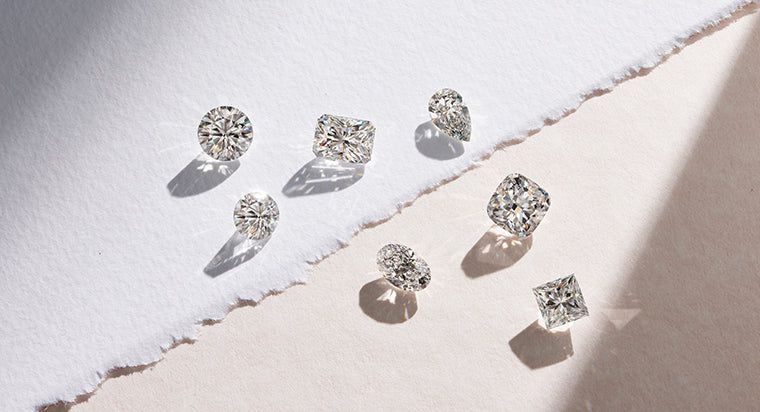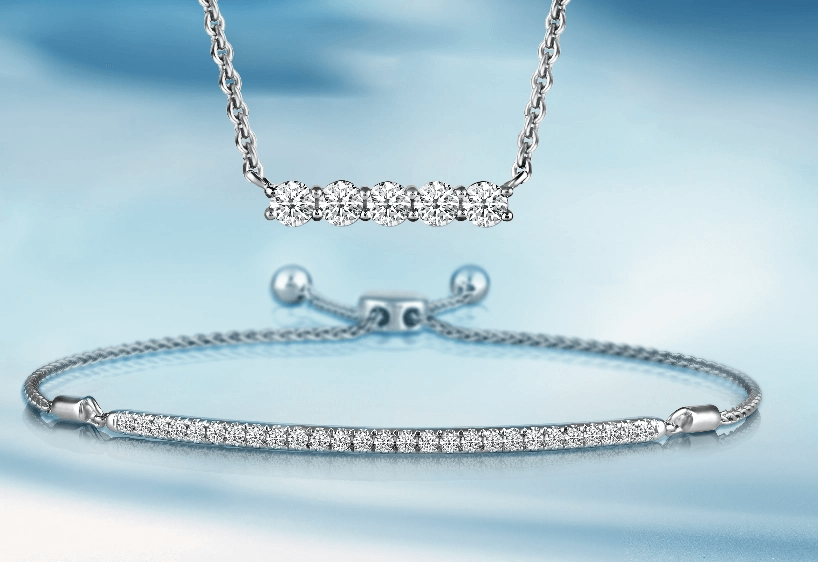What is a Blood Diamond?

Diamonds are celebrated for their purity and their beauty and are often synonymous with engagements and weddings. Unfortunately, blood diamonds don’t share the same wholesome nature. Instead, they are linked to danger, violence, and war.
TABLE OF CONTENTS
Blood Diamond Meaning
Also known as conflict diamonds, blood diamonds are mined in areas operated and guarded by those typically opposed to governments and administrations. The area is often a war zone and the miners (including men, women, and children) are typically forced to toil in terrible conditions.
Blood diamonds come from various countries, most often from those situated on the West Coast of Africa and Southern Africa. During the 20th and 21st-century civil wars, blood diamonds were mined in countries such as the Ivory Coast, Liberia, the Republic of Congo, Zimbabwe, Angola, Guinea, Guinea Bissau, and Sierra Leone. Blood diamonds are mined and then sold by rebel groups to subsidize illegal military action, terrorism, and war efforts. However, creating and running mines is an incredibly expensive proposition. Even large companies like DeBeers can spend upwards of a billion dollars to establish mines. Diamond supply is depleting and so more vigorous mining needs to be done to procure diamonds from deep within the earth. The access to surface-level diamonds, or those available without more intensive mining practices has already been depleted, making it less and less likely that diamonds are tainted with conflict. The barriers of cost make it unlikely that warmongers could resort to diamond trading and mining to fund their violence.
Diversification in the regions of supply for mined diamonds means that blood diamonds may be incredibly scarce in today’s markets.
In 2017, Russia, Canada and Australia were in the top 4 countries in the world in terms of diamonds mined by carat weight.
As the supply of African diamonds decreases, Arctic areas of the world will become a more leading source of supply.
What is The Kimberly Process?
We all love a glamorous gold diamond ring, a pretty diamond necklace, and sparkling diamond earrings, but not if the jewelry contains blood diamonds. In 2003 the Kimberly Process (KP) was brought into force to reduce the flow of conflict diamonds. Made up of industry, civil societies, and administrations, the KP set about the arduous task of stopping conflict diamonds from joining the rough diamond market.
The Kimberly Process created an international certification scheme designed to reduce the rough diamond trade and support legitimate diamond mining and trading. Buyers can purchase certified conflict-free diamonds with peace of mind, knowing their money will not be used to support hostility and bloodshed. In the last 10 years, since the Kimberly Process was fully established, there have even bigger strides made by miners, and cutters to ensure that the diamonds they produce are fully vetted.
Reputable Brands Embrace Conflict-Free Diamonds
A reputable jewelry brand would never consider using blood diamonds, the unethical practice is not only widely frowned upon, but also illegal! Thankfully, conflict diamonds are in short supply nowadays – due to rules and laws passed by local governments. Administrators carefully vet diamond mining, monitoring labor conditions and ensuring restrictions are in place to ensure ethical trade.
Ethical and Affordable Lab-Grown Diamonds
If you like the idea of conflict-free diamond rings, lab diamonds are the way to go. There’s no mining involved, so you can automatically assume the diamonds are conflict-free. Lab-made diamonds are a great alternative – take a look and you’ll find lab-grown diamond jewelry is just as striking as earth-mine. Both share the same physical and chemical makeup, and only an expert can tell the difference!
Lab-grown and earth-mined diamonds may look the same, but they don’t cost the same. Lab-grown diamond rings and other lab-grown diamond jewelry is more affordable. We’re pleased to say lab-grown diamonds are also eco-friendly and easily accessible.
If you check out diamond jewelry online stores, such as With Clarity, you’ll find a stunning range of items. Whether you’re looking for a striking diamond engagement ring, a stunning wedding band, diamond earrings, or another beautiful item, you won’t be disappointed.
What to Ask Your Jeweler
Reputable jewelers always take time out to answer any questions you have. Here are a few things to take into account before you buy:
Are the gems certified conflict-free diamonds?
Find a jeweler with a policy stating they only sell conflict-free diamonds. Ideally, they should obtain written warranties from diamond suppliers stating the diamonds have been purchased legally.
Who certifies the diamonds?
Choose conflict-free diamonds certified by the Kimberly Process to ensure there’s no link between rebel groups and your new diamond earrings, diamond necklace, etc
Is IGI/GIA certification a must?
The Gemological Institute of America (GIA) is a non-profit, independent organization that conducts research and lab services. The GIA has a robust reputation for accurately grading diamonds. The International Gemological Institute offers a similar service to Asia and Europe.
Does The Jeweler Offer Free Returns/Exchange?
It’s always wise to buy from a brand that offers free returns/exchanges – just in case you’re not happy with your new item.
FAQs
Is a Blood Diamond a Real Diamond?
Earth-mined diamonds are precious gems consisting of crystallized carbon particles that have been placed under pressure. Lab diamonds are created in the same way but in man-made conditions. Both are beautiful, unfortunately, the same cannot be said for blood diamonds! Although they are real and are made in the same way they are mined under terrible conditions and for ill-gotten gain.
Are Blood Diamonds Illegal?
It is illegal to trade blood diamonds in the USA, but you will find one or two unscrupulous jewelers engaging in the practice. To safeguard yourself, always buy from reputable diamond jewelry online stores. For extra peace of mind opt for lab-grown diamond jewelry.
Do Blood Diamonds Still Exist?
Blood diamonds are rare, and thankfully rebel groups often struggle to mine the precious stones. Even large, legal companies find it challenging to mind earth diamonds, which goes some way to explaining their expense. The problems associated with mining are putting off warmongers from earning money that way. Hopefully, the trend will continue and we’ll see the back of blood diamonds for good.







